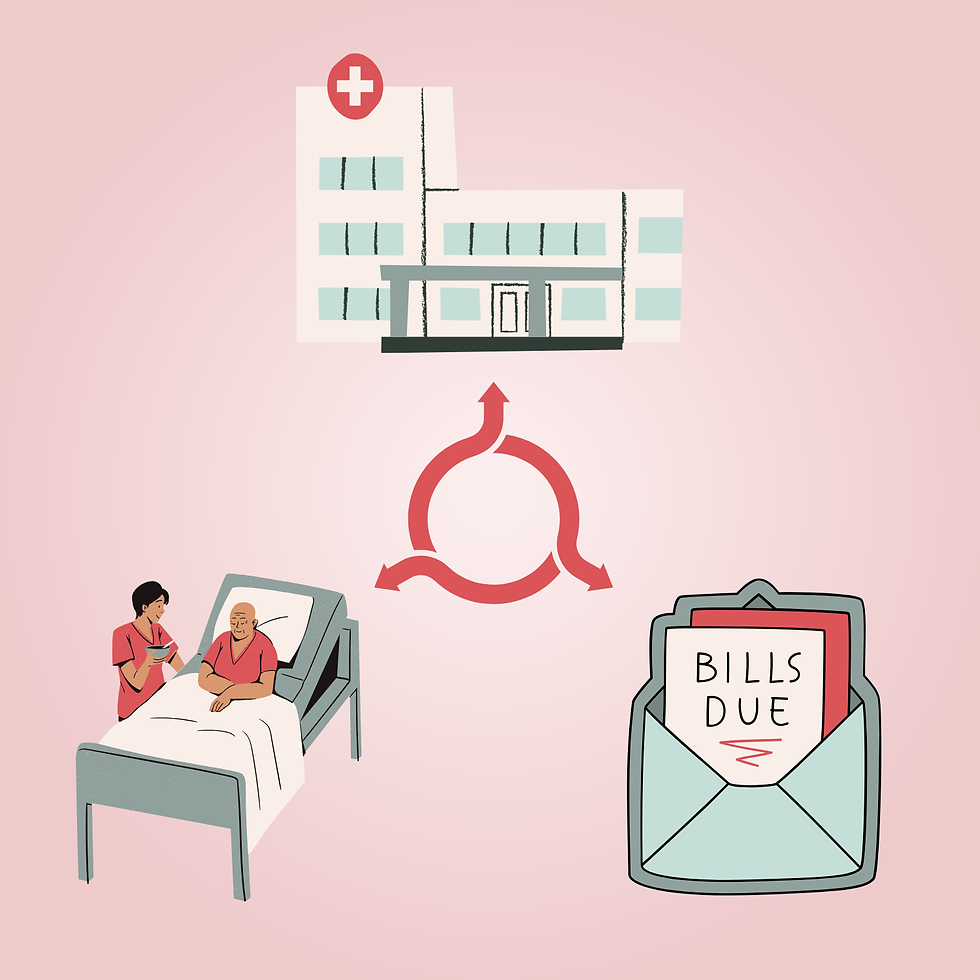UPenn leads a study assessing the impact Default Palliative Care Consultations will have on hospitalized populations
- Duke Medical Ethics

- Apr 1, 2024
- 2 min read
Palliative care is a special type of medical care for people who are seriously ill, that has the goal of alleviating and managing symptoms in a way that maximizes comfort and improves quality of life by catering to a patient's needs. Despite this being an option for patients, many are unaware of this option and fail to request it. Combined with the failure of some providers to inform their patients about palliative care, we see that overall it is not as popular. In a study conducted by the University of Pennsylvania, they were curious to see how making palliative care consults a default option for hospital patients would increase the number of people who decide to use palliative care.

The study took place between March 2016 and November 2018, and included over 34,000 patients with chronic obstructive pulmonary disease (COPD), dementia, or kidney failure at 11 hospitals across eight states. Despite being one of the populations that could greatly benefit from this type of research, past palliative care studies have not been inclusive of patients with COPD, dementia, and kidney failure.
The results of the study showed that palliative care consultation rates increased from 16.6 percent to 43.9 percent and the time to consultation decreased by 1.2 days. This means more people were hearing about their options in the realm of palliative care much sooner. While early palliative care consults would be helpful in patients considering their treatment options, it is not explored enough. According to the World Health Organization, Worldwide, only about 14% of people who need palliative care currently receive it. It was also found that 9.6% of providers ended up canceling the palliative care consult.
Of the canceled palliative care consult orders, clinicians said 53.1% had “no palliative care needs at this time.” It would be interesting to know more specifically what went into the thought process of doctors that said their patient did not need the palliative care consultation. This raises the ethical question of if doctors determined the patient doesn't need this type of care on their own, or whether they talked to the patient about it before entirely opting out of it. I think the reasoning for providers who opted out of the palliative care consult might be a mix of these two justifications, but regardless, knowing the thought process behind such decisions could help inform future policy changes regarding how doctors administer and discuss palliative care with their patients. Evidently making a palliative care consult default will increase the amount of people who can benefit from and palliative care sooner. This is a cost effective strategy that would be useful in hospitals across the country, and increase access to and knowledge about end of life care.


Comments